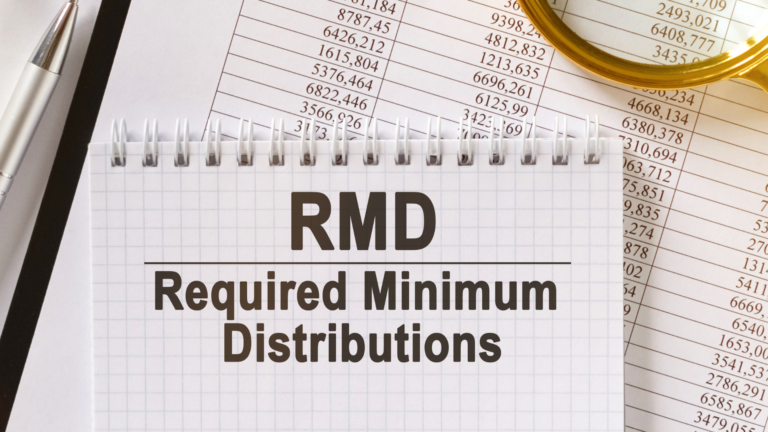
This summer, Congress passed the Opportunity and Balanced Budget Bill, nicknamed the “Big, Beautiful Bill Act” or OBBB. It’s one of the most sweeping pieces of tax and budget legislation in recent years. While much of the media coverage has focused on its political implications, we’re focused on what really matters to you: how this affects your taxes, investments, benefits, and long-term planning.
We have been carefully evaluating the OBBB to help clients understand its full scope. Here’s a breakdown of the most important highlights and what you might want to consider going forward.
Tax Relief for Individuals and Families
For most taxpayers, the permanence of the 2017 tax cuts provides clarity and reduced rates for many. The standard deduction is also increasing, which means more income is shielded from taxation. In addition, several new deductions have been introduced but many are temporary and set to expire in 2028.
Here’s what’s changing:
- Tipped and Overtime Income Deductions: Workers earning under $150,000 (single) or $300,000 (joint) can deduct up to $25,000 in tipped income and up to $25,000 in overtime income.
- Social Security Deduction: Those ages 65 and older may now deduct up to $6,000, phasing out at $75,000 (single) and $150,000 (joint).
- Auto Loan Interest Deduction: Interest on U.S.-assembled vehicle loans is deductible up to $10,000 annually (through 2028).
- Child Tax Credit: Permanently increased to $2,200 per child and indexed for inflation going forward.
For families in high-tax states, the temporary increase of the SALT (State and Local Tax) deduction cap from $10,000 to $40,000 is a welcome reprieve, though it’s also set to expire in 2029. However, this also means taxpayers in low-tax states are subsidizing high-tax states.

Major Benefits for Business Owners
Business owners will find several significant advantages under the new law. In many ways, this bill doubles down on a pro-entrepreneurial philosophy.
Key provisions include:
- QBI Deduction: The 20% deduction for Qualified Business Income is now permanent and has expanded to 23%.
- Bonus Depreciation: The bill reinstates and makes permanent 100% bonus depreciation for first-year equipment purchases.
- Section 179 Deduction: The cap increases to $2.5 million, allowing more immediate expense.
- R&D Tax Incentives: Domestic research and development costs are now deductible up front or may be amortized at the business owner’s discretion.
- Estate Planning: The small business estate tax exemption has been increased, which could make long-term transition planning more tax efficient.
If you’re considering investing in equipment, transitioning your business to the next generation, or revisiting your structure, now is the time to revisit your plan.
Shifts in Healthcare and Safety Net Programs
The bill also reshapes several public benefit programs. Medicaid and SNAP (food stamps) are both seeing significant cuts and expanded work requirements. This is expected to reduce eligibility and coverage for some Americans, especially groups like seniors, veterans, and rural residents.
Healthcare providers, particularly rural hospitals that rely heavily on Medicaid, may be affected. And for Medicare beneficiaries, certain drug pricing protections have been rolled back, which could impact out-of-pocket costs in the coming years.
If you know someone who relies on any of these programs, it’s worth staying informed and reviewing your healthcare and long-term care planning strategy with us.
Energy and Economic Outlook
From a policy standpoint, the OBBB makes clear shifts away from clean energy incentives and toward traditional energy development. Tax credits for solar, wind, and EVs are being phased out, while oil and gas development on federal lands is being prioritized.
What Should You Do Now?
At BCA Private Wealth, we’re helping clients respond strategically to the OBBB by evaluating:
- Personal Tax Planning: How new deductions and rates affect your income, gifting, and Roth conversion decisions
- Business Strategy: Whether to accelerate investments or restructure your entity for better long-term tax efficiency
- Estate Planning: Whether your documents reflect new exemptions and wealth transfer opportunities
- Healthcare Readiness: Understanding potential benefit changes and adjusting accordingly
- Long-Term Investment Strategy: Considering implications on your portfolio’s structure

Let’s Talk About Your Strategy
OBBB is wide-ranging, and it means different things for different people. Whether you’re a business owner planning growth, a retiree reviewing healthcare coverage, or a family thinking about taxes in 2025, we’re here to help you move forward with clarity and confidence.
If you’d like to schedule a review or need help understanding how these changes apply to your situation, let’s connect. Your financial strategy should evolve as the landscape changes, and we’re here to guide you in every step of the way.
Copyright © 2025. BCA Private Wealth. All rights reserved.
Our mailing address is:
BCA Private Wealth
15 Halton Green Way
Greenville, SC 29607
Disclosure:
BCA Private Wealth is a registered investment adviser. The advisory services of BCA Private Wealth are not made available in any jurisdiction in which BCA Private Wealth is not registered or is otherwise exempt from registration.
Please review BCA Private Wealth Disclosure Brochure for a complete explanation of fees. Investing involves risks. Investments are not guaranteed and may lose value.
This material is prepared by BCA Private Wealth for informational purposes only. It is not intended to serve as a substitute for personalized investment advice or as a recommendation or solicitation or any particular security, strategy, or investment product.
No representation is being made that any account will or is likely to achieve future profits or losses similar to those shown. You should not assume that investment decisions we make in the future will be profitable or equal the investment performance of the past. Past performance does not indicate future results.


